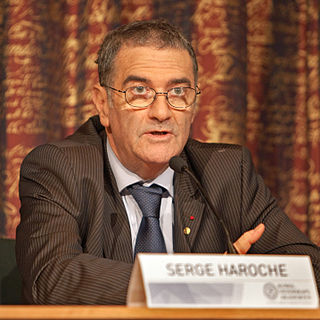A Quote by Evgeny Morozov
Technological defeatism - a belief that, since a given technology is here to stay, there's nothing we can do about it other than get on with it and simply adjust our norms - is a persistent feature of social thought about technology. We'll come to pay for it very dearly.
Related Quotes
You can't just stop technological progress. Even if one country stops researching artificial intelligence, some other countries will continue to do it. The real question is what to do with the technology. You can use exactly the same technology for very different social and political purposes. So I think people shouldn't be focused on the question of how to stop technological progress because this is impossible. Instead the question should be what kind of usage to make of the new technology. And here we still have quite a lot of power to influence the direction it's taking.
The only weapon we have to oppose the bad effects of technology is technology itself. There is no other. We can't retreat into a nontechnological Eden which never existed...It is only by the rational use of technology to control and guide what technology is doing that we can keep any hopes of a social life more desireable than our own: or in fact of a social life which is not appalling to imagine.
We have to do away with a false and misleading dualism, one which abstracts man on the one hand and technology on the other, as if the two were quite separate kinds of realities.... Man is by nature a technological animal; to be human is to be technological.... When we speak of technology, this is another way of speaking about man himself in one of his manifestations.
One of the things that's exciting for me about this novel is that, to me, Brookland and The Testament of Yves Gundron were both, in certain regards, crypto-steampunk. They're both books that are interested in an alternate technological past that in fact didn't historically come to pass. If you were to ask me what my novels were about, I would say, well, these are novels about technology and how we relate to technology and what technology means.
Anyone who has studied the history of technology knows that technological change is always a Faustian bargain: Technology giveth and technology taketh away, and not always in equal measure. A new technology sometimes creates more than it destroys. Sometimes, it destroys more than it creates. But it is never one-sided. The invention of the printing press is an excellent example. Printing fostered the modern idea of individuality but it destroyed the medieval sense of community and social integration.
I am extraordinarily fascinated by the future of technology. We are in the early infancy of technology, and we have an opportunity to guide how technology develops and integrates into our lives. I talk a lot about the 'invisible interface,' or the idea that we can utilize technology without being absorbed into a screen.
Technology for me is discover, learn, evolve and implement. It combines 3Ss- speed, simplicity and service. Technology is fast, technology is simple and technology is a brilliant way to serve people. It is also a great teacher. The more we learn about technology and the more we learn through technology, the better it is.
We ought to be keeping in mind that the technology is not just hardware and machinery, it is also software. So you can think of languages of the technology and writing of the technology and the social justice of the technology in what social justice does is reduce impacts on the Earth because the most impact is from the poorest and richest people.
Scientists tell us that we have enough technology to save our planet. . . . Yet we don't take advantage of this new technology. . . . The technological has to work hand-in-hand with the spiritual. Our spiritual life is the element that can bring about the energies of peace, calm, brotherhood, understanding, and compassion. Without that, our planet doesn't stand a chance.




































